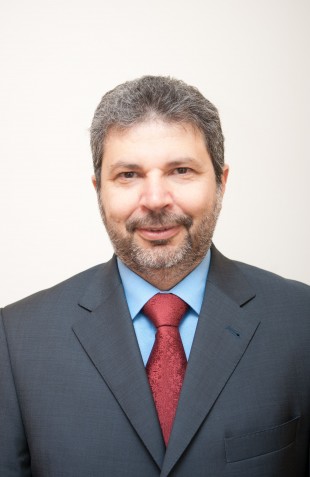Saudi Amb. talks on meaning of Ramadan
*His Excellency Amb. Ahmad Al Barrak of Saudi Arabia in Seoul, replied to a host of questions Tuesday (Aug. 7) The AsiaN had lodged through e-mail for written interview with him on the occasion of the month of Ramadan. Following is the full contents of the interview.
Q1. How does Embassy of Saudi Arabia observe Ramadan? In particular, how do
diplomats from the Embassy of Saudi in Seoul spend time during Ramadan period?
Ans. – The month of Ramadan is different from other months, as being a favorite month of Allah. Muslims are so happy every year when Ramadan comes. On the occasion of Ramadan, the Embassy distributes dates, famous fruits in the Kingdom of Saudi Arabia, to everyone. The Embassy also holds an annual Iftar Dinner (Fasting break down at sunset) at the Embassy building in Seoul. In the Iftar Dinner, not only Muslims participate, but also a number of diplomats, Korean businessmen, government officials, and religious leaders take part. The Embassy also holds daily Iftar at the Central Mosque in Seoul. Regarding the activities of Saudi diplomats during Ramadan, there is no big difference in comparison with other months, other than increasing family meetings and exchanging invitations with each other , and a lot of worship.
Q2. Which significance or meaning does Ramadan hold for Saudi citizens?
Ans. – Ramadan fasting is one of the five pillars of Islam. Allah gives the holy month of Ramadan many virtues. Mercy is granted for Muslim followers. It is the month of power, patience and the chance for Muslims to gain favors, and forgiveness of sins, obedience to Allah. Fasting is not merely refraining from eating and drinking. It is a comprehensive process of self-control and discipline, as well as a chance to practice tolerance, brotherhood and love.
Q3. – What is Ramadan’s real implications for Muslims?
Ans. – The fasting month of Ramadan is different from other acts of worship, where it enhances human relationship with Allah into a very supreme, hidden one. The other acts of worship are visible, but fasting during Ramadan is always invisible act of worship.
Fasting during Ramadan has many pros, such as strengthening Muslim’s will, preventing oneself from the available pleasures and needs in compliance and obedience to Allah instructions. It is a way of self-discipline, removing sins through getting closer to Allah by obedience to Allah and avoiding committing sins.
Ramadan reminds the fasting person to realize how weak human beings are when they refrain from taking food and water for extended hours. Such situations make them thank Allah for being able to obtain and enjoy the good things of life.
Another merit, when Muslim refrain from eating and drinking for long hours, it makes him or her to think about the poor and the needy people, and his obligations for them. People find themselves ready for helping them with kind heart, seeking to secure their rights.
Another merit of Ramadan is its ability of healing human body of diseases that have been accumulated by foods. Fasting cures and relieves these effects. Old and recent medical researches have shown the benefits of fasting, healing of many chronic and emergency diseases.
Q4. – Which comments would you like to give Koreans regarding Ramadan?
Ans. – Let me first express my sincere thanks and appreciations to the government and the friendly people of Korea for the great values accomplished in Korea including principles of tolerance and peaceful co-existence among all religions. In fact, such accomplishments are not surprising given that Korea has unique cultural and historical features. Also I would like to express my thanks to AsiaN for giving me the chance to talk about one of the important Islamic pillars, which assures how deep the vision of AsiaN and those who are in charge of it for the sake of spreading culture of dialogue , mutual understanding and other human values.
































































